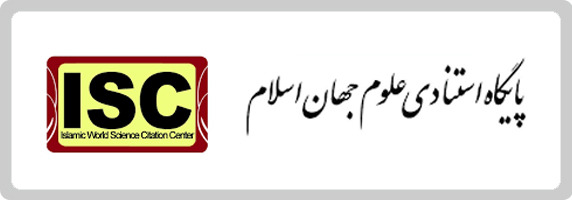Design and validation of a multi-skills school model with a strategic agility approach in junior high schools
Keywords:
Multi-skills school, strategic agility, junior high schoolAbstract
This study aimed to design and validate a multi-skill school model with a strategic agility approach in lower secondary education. A qualitative methodology based on grounded theory using Strauss and Corbin's (1998) systematic approach was applied. The design phase involved 19 experts selected via snowball sampling from university faculty and educational planners. For the validation phase, 22 experienced school principals and teachers from Golestan Province were chosen through purposive sampling. The Delphi method was employed in three rounds, and data analysis was performed through open, axial, and selective coding using SPSS software. Instrument reliability (Cronbach’s alpha = 0.84) and content validity were confirmed by expert review. The proposed model includes 11 core categories and 25 subcategories organized into six main dimensions of the paradigmatic model: causal conditions, contextual conditions, intervening conditions, central phenomenon, strategies, and outcomes. Key components included the need to develop agile and multi-skilled students, use of educational technologies, and improvement of academic and professional performance. The validation results confirmed the relevance and importance of the identified components based on expert consensus. The strategic agility-based multi-skill school model promotes students’ multiple competencies, self-directed learning, adaptability to change, and enhanced academic and career outcomes. This model can serve as a valuable framework for educational reform in secondary schools and is recommended for integration into national education strategies.
Downloads
References
Akram, H., & Li, S. (2024). Understanding the role of teacher-student relationships in students' online learning engagement: Mediating role of academic motivation. Perceptual and Motor Skills. https://doi.org/10.1177/00315125241248709
Alenezi, M., Akour, M., & Alfawzan, L. (2024). Evolving Microcredential Strategies for Enhancing Employability: Employer and Student Perspectives. Education Sciences, 14(12), 1307. https://doi.org/10.3390/educsci14121307
Avetisyan, P., Gevorgyan, N., & Tadevosyan, M. R. (2024). The Role of Managerial Competencies in Higher Education: Navigating Current Transformational Trends. Revista De Gestão Social E Ambiental, 18(10), e09400. https://doi.org/10.24857/rgsa.v18n10-277
Batova, О. С. (2024). Professional Skill Contests as a Means of Professional Development and Self-Realization of Higher School Teachers. Penitentiary Science, 18(1), 108-114. https://doi.org/10.46741/2686-9764.2024.65.1.013
Ibrahim, N. H., Norman, H., & Nasir, M. (2025). A Review of the Metaverse in Nursing Education: A SCORE Model Evaluation. International Journal of Learning Teaching and Educational Research, 24(1), 209-224. https://doi.org/10.26803/ijlter.24.1.11
Kasemsap, K. (2021). Advocating Problem-Based Learning and Creative Problem-Solving Skills in Global Education. 1372-1398. https://doi.org/10.4018/978-1-7998-3022-1.ch072
Khalaf, A. H. D. (2023). Impact of Strategic Orientation on Aility Management, Descriptive Analytical Research in the Iraqi Ministry of Education. International Journal of Research in Social Sciences and Humanities, 13(4), 46-61. https://doi.org/10.37648/ijrssh.v13i04.006
Lamsombat, B., & Wacharakul, C. (2024). A Confirmatory Factor Analysis of the Agile Mindset of Educational Institution Administrators Under the Office of Khon Kaen Primary Educational Service Area 5. Global Conference on Business and Social Sciences Proceeding, 16(1), 20-20. https://doi.org/10.35609/gcbssproceeding.2024.1(20)
Maddukelleng, M., Jihan, J., Gunawan, H., Murcahyanto, H., & Pasaribu, W. (2023). Hybrid Learning Innovation: Challenges for Developing Teachers Skills in Indonesia. Al Qalam: Jurnal Ilmiah Keagamaan Dan Kemasyarakatan, 17(2), 842-854. https://www.jurnal.stiq-amuntai.ac.id/index.php/al-qalam/article/view/1959
Mkomwa, S., Mloza-Banda, H. R., & Mutai, W. (2022). Formal Education and Training for Conservation Agriculture in Africa. 305-330. https://doi.org/10.1079/9781789245745.0019
Mohammadzadeh, H., Bagheri, L., Bagheri, S., Yousefzadeh, L., & Biabangard, R. (2023). Enhancing Learning in Elementary Students Through Skill-Based Assignments. The First International Conference on Sociology, Social Sciences, and Education with a Future-Oriented Approach,
N., & Bowanga, L. (2020). An Intelligent Multi-Criteria Decision-Making Model for Sustainable Higher Education Strategy Selection. JISIoT, 1(2), 93-101. https://doi.org/10.54216/jisiot.010204
Nissim, Y., & Simon, E. (2023). Agilecation: Agile Leadership in a Higher Education Institution (HEI) During the Covid-19 Pandemic a Test Case. European Journal of Contemporary Education, 12(1). https://doi.org/10.13187/ejced.2023.1.139
Obaje, T. (2024). Leveraging Covert Curriculum in the Nurturing of Entrepreneurial Mindsets Among Higher Education Students. African Journal of Inter/Multidisciplinary Studies, 6(1), 1-12. https://doi.org/10.51415/ajims.v6i1.1308
Rahayu, S. R., Fauzi, L., Zainafree, I., Merzistya, A. N. A., Affandi, M. D., Wahidah, N. R., Aulia, A., Saefurrohim, M. Z., Muflikhah, Z., & Savitri, S. (2022). Skill-Based Health Education for Adolescent Mental Health Through the HOPE. Engagement Jurnal Pengabdian Kepada Masyarakat, 6(2). https://doi.org/10.29062/engagement.v6i2.1145
Rathi, P., Gupta, S. K., & Gogia, D. (2023). Identifying Agility Enablers in Context of Higher Education Institutions (HEIs): Conceptual Framework. Journal of Statistics and Management Systems, 26(3), 613-624. https://doi.org/10.47974/jsms-1051
Reyes, E. M. (2024). Leadership 5.0, Cross-Functional Collaboration, and Team Innovation Attributes Among Faculty in Selected Higher Education Institutions. International Journal of Social Science and Human Research, 7(06). https://doi.org/10.47191/ijsshr/v7-i06-51
Siregar, Y. (2023). Increasing the Competence of Vocational Education Teachers With 4C Skills-Based Training Management (Critical Thinking, Creativity, Communication, Collaboration). https://doi.org/10.4108/eai.19-9-2023.2340493
Subrahmanyam, S. (2024). Implementing Agile Talent Management Practices to Adapt to Changing Higher Education Landscapes. 187-210. https://doi.org/10.4018/979-8-3693-6880-0.ch009
Downloads
Published
Submitted
Revised
Accepted
Issue
Section
License
Copyright (c) 2024 Journal of Cognition, Behavior, Learning

This work is licensed under a Creative Commons Attribution-NonCommercial 4.0 International License.







